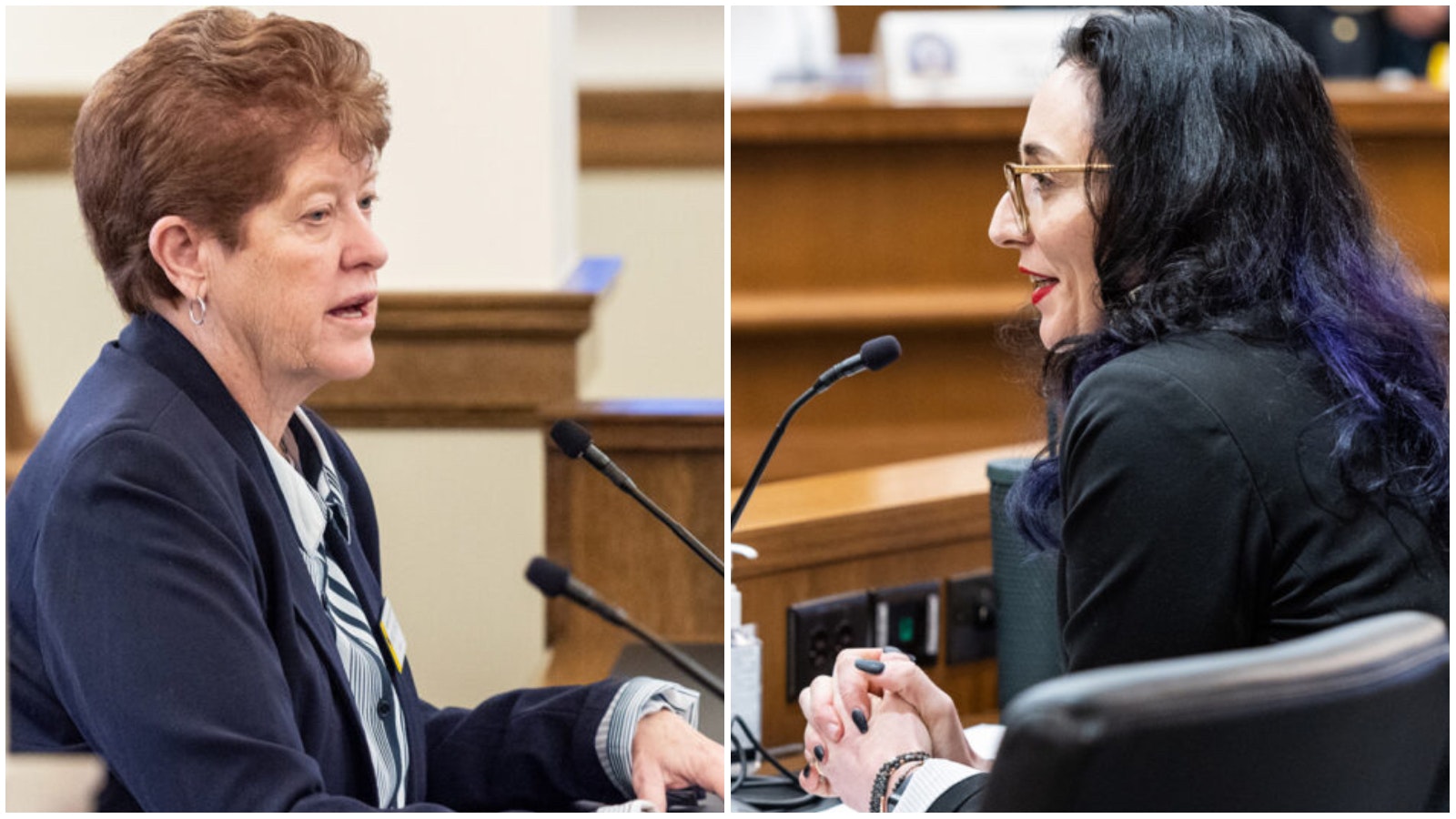A legislative committee has advanced a bill that allows prosecutors to charge drug dealers with homicide if their customers die.
The House Judiciary Committee voted 8-1 to advance Senate File 181 to the House floor with only Rep. Karlee Provenza, D-Laramie, opposing it. The bill now is being heard in the state House of Representatives.
If it passes, SF 181 would impose a felony punishable by up to 20 years in prison for people who deliver fatal methamphetamine, fentanyl or heroin.
Those drugs are “the big three” that bill sponsor Sen. Wendy Schuler, R-Evanston, said she wanted to target.
Wyoming law already has a drug-induced homicide statute, but it’s only chargeable when a dealer’s victim is a child. Schuler’s bill would expand that charging option to also include adults for those three drugs.
Kingpins And Dealers
Provenza said she worries the bill goes overbroad. During Wednesday’s committee meeting she questioned Uinta County Attorney Loretta Howieson Kallas, whose concerns prompted Schuler to draft the bill.
“Oftentimes, I think we see folks who are delivering are family members or friends of these folks and not necessarily drug dealers,” said Provenza. “I’m hoping you can explain to me how this isn’t going to get those instances, and this is only going to get drug dealers and kingpins.”
Howieson Kallas countered, saying she has roughly 60 active felony drug cases.
“And I am sitting here trying to think of a single one that involves a delivery between friends or family members,” she said. “These are people that are delivering controlled substances in a transaction where they’re gaining money.”
There are times when the transaction involves smaller amounts, which prosecutors consider in their charging choices, said Howieson Kallas, but Uinta County often sees larger quantities in its drug cases.
That’s because Interstate 80 cuts through the county and brings drugs with it, she said.
Good Samaritan
When SF 181 was being considered by the state Senate, Sen. Cale Case, R-Lander, amended it so that a defendant who had called 911 or rendered medical aid to an overdose victim would get a break at sentencing.
The newest version of the bill commands judges to consider those gestures as mitigating factors at sentencing hearings.
Provenza said she supports that part of the bill.
Sabrina King, a member of the public testifying on her own behalf, said the vast majority of drug-induced homicides “are witnessed,” and often by the person who provided the drugs. She said Case’s “good Samaritan” amendment is intended to help people feel more secure in calling for medical help.
Rep. Ember Oakley, R-Riverton, said she’s not a big fan of commanding judges to consider certain things as mitigating factors, because they already do that without compulsion from the state.
“That’s what judges do every time they listen to sentencing,” said Oakley, adding that witnesses on all sides of a crime testify at sentencing. “There are no mad sentencings, ever, and there certainly wouldn’t be in a case like this.”
Provenza said that even with the good Samaritan amendment, she still fears the law change would deter people from calling for help.
Carrot And Stick
Another Democrat on the committee, Rep. Ken Chestek of Laramie, said he supports the bill because he believes there should be criminal sanction to prevent drug activity.
But Chestek said he also hopes there will be more of a public health response for drug issues in the future as well because “this is a public health issue.”





